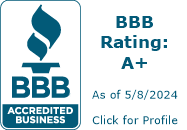Invoice Factoring
Invoice Factoring Explained
Quick Facts:
You sell your unpaid invoices (accounts receivable) to a factoring company at a discount
Two main types: recourse and non-recourse factoring
The factoring company collects payment from your customers
Available through online lenders and some banks

What Is Invoice Factoring?
Invoice factoring is not a loan. Instead, it’s a way to turn unpaid customer invoices into fast cash.
Here’s how it works:
You sell your invoices to a third party (called a factor) for less than their full value.
The factor gives you an advance, usually 85%–95% of the invoice amount.
The factor then collects payment directly from your customer.
Once the customer pays, you get the rest of the money—minus the factor’s fees.
This option is especially helpful if your customers take weeks (or months) to pay, but you need cash right away.
Why Businesses Use Factoring
Fast access to cash (funding often arrives in 1–3 days)
No need to put up other collateral (the invoices themselves act as security)
Useful for businesses with limited credit history or assets
Popular in industries like manufacturing, textiles, transportation, and wholesale—where long payment cycles are common
How Factoring Works
Apply with a factoring company (banks and independent finance firms also offer it).
The factor reviews your clients’ creditworthiness—not just your own business.
If approved, you sell invoices to the factor, typically for 85%–95% of their value.
The factor advances you cash within a few days.
When your customer pays the invoice, the factor deducts its fees (usually 2%–4.5% per 30 days) and sends you the balance.
👉 Important: The factor has the legal right to contact your customers directly for payment.
Example of Factoring
Imagine you own a restaurant supply company. A client owes you $20,000, but they won’t pay for 60 days. You need money now to buy equipment for another order.
Instead of waiting, you sell the $20,000 invoice to a factoring company for 90% ($18,000). You get that cash right away. When your client pays, the factor keeps its fee and sends you the remaining balance.
Types of Factoring
Recourse factoring (most common):
If your customer doesn’t pay, you’re responsible for covering the unpaid invoice.Non-recourse factoring:
The factor takes on the risk if the customer fails to pay. Since this is riskier for the factor, fees are usually higher.
Pros and Cons of Factoring
Pros:
Quick access to working capital
No new debt or equity given up
Keeps your cash flow steady so you can grow
Cons:
Can be more expensive than traditional loans or credit lines
Factor collects directly from your customers (some business owners don’t like this)
Is Factoring Right for Your Business?
Factoring may be a good fit if:
Your business relies on B2B invoices with long payment terms
You have slow-paying customers
You need fast cash to cover expenses or support growth
To qualify, factoring companies mainly look at your customers’ payment history, not just your credit. If your clients have a track record of paying on time, approval is much easier.
Bottom Line
Invoice factoring is one of the oldest and most reliable ways businesses improve cash flow. It’s not debt—it’s a cash advance on money you’ve already earned. Just make sure you fully understand the fees and terms before signing a factoring agreement.
Disclaimer: * The 0% is for a limited period of time, your initial time period and final rate will be based on your qualifications and program offerings at time of application and approval. All programs are subject to change without notice. Submitting your business funding application will not impact your personal credit score. However, if you choose to proceed with an offer, certain funding options may require a hard credit inquiry. ChicagoBusinessLoans.com is not a direct lender and does not make credit decisions. Approvals are not guaranteed and are subject to bank/issuer decision. We do not provide legal, tax, or financial advice. Please consult a licensed professional for personalized guidance.
Leave your email and we will contact you in 24 hours

